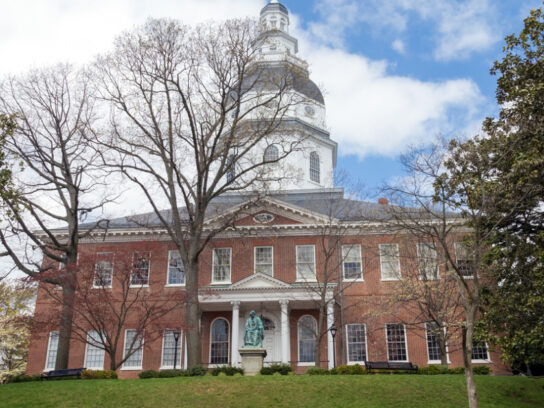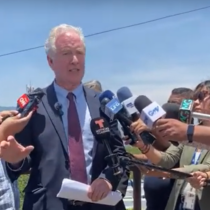
Transportation funding, climate change and education are part of the county’s agenda for the General Assembly session, according to County Executive Marc Elrich.
The General Assembly convened Wednesday. He noted the state has to deal with fiscal restraints related to transportation — Gov. Wes Moore’s administration proposed $3.3 billion in transportation budget cuts. Elrich believes the greatest budgetary challenge the state faces is funding transportation infrastructure, and the solution is for the state to give counties the authority to create their own solutions. Any decisions to fund any big project are made by legislators, Elrich said during a briefing Wednesday, “and they don’t have an incentive to raise money for the counties.”
Elrich said leaders will work to advance legislation to change this — “whether you’re a Republican county or a Democratic county, everybody understands the limitations of relying completely on the state for things you need to do in your own county.”
He said Virginia created a local taxing authority at the county level about a dozen years ago, with taxes primarily on commercial properties, which raised hundreds of millions per year which allowed for “massive investments in transportation.”
“People want to know whether the infrastructure in your master plan is real or whether it’s not real, and unfortunately the Purple Line is a poster child for this — we do not deliver on time.”
The county’s agenda includes pushing for Bus Rapid Transit funding and supporting opportunities for housing production.
Elrich said leaders will also work toward education funding, accountability in the Blueprint, extending healthcare access, affordable housing and combatting climate change.
During a Montgomery County Public Schools (MCPS) board meeting Thursday, Coordinator of Legislative Affairs Patricia Ursprung said she will be tracking more than 60 filings over the course of the 90-day legislative session.
Some filings included bills to add financial literacy to school curriculums, provide transparency in funding and budgets, and a teacher shortage reduction act which aims to allow teachers to work closer to where they live.


Comments are closed.